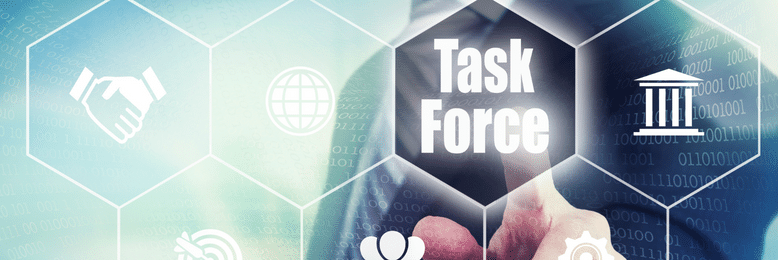How You Can Apply the Government’s Cybersecurity Policy to Your Business
June 17th, 2022 | 3 min. read
%20(22).jpg)
Today, cybersecurity is one of, if not the most important issue the government has to deal with.
The increase in cybercriminal activity has impacted the US government just as much as it has the private and corporate sectors in recent years. It is to the extent that the previous administration recourse to making several changes to the governmental cybersecurity policies.
One major incident that heavily affected this decision was the OPM hacking incident in 2015. That case alone affected 21 million individuals within the Federal government. It highlighted the seriousness of what is referred to now as insider threats, urging them to create the National Insider Threat Task Force (NITTF).

The NITTF helped the government deter, detect, and mitigate insider threats by safeguarding classified information from any forms of compromise. But that wasn’t enough to keep hackers out. Thus, the following changes were implemented:
- The US government appointed its own Chief Information Security Officer (CISO) to develop, implement, and oversee the security of sensitive government data.
- The Cybersecurity and Infrastructure Security Agency (CISA) Cybersecurity Advisory Committee were put in place to strengthen the country's cybersecurity.
- The legislation of the Computer Security Information Sharing Act of 2015, allows government agencies and non-government entities alike to share information as they investigate cyberattacks.
And only time will tell what changes the current administration might choose to make.
However, all of these changes were applied only to government agencies. Unfortunately for the private sector, all the great work the government did couldn't be shared with corporate America. But, that doesn't mean you can't learn from the steps they've taken and use this information to build better cybersecurity policies of your own.
Here at ITS, we've helped hundreds of businesses bolster their network defenses for nearly twenty years. In this article, you will learn the two significant changes you can start implementing in your business to improve your cybersecurity practices.
What you can take away from the changes in the government’s cybersecurity policy
Your cybersecurity policy sets the standard and procedures everyone in your organization must follow to ensure maximum cyber protection. Based on the changes mentioned earlier in the government policies, there are two things you can take away and do within your business that goes above and beyond standard cybersecurity measures:
1. First, you need to appoint a senior partner to be in charge of your cybersecurity program in its entirety.

Keeping cybersecurity separate from the duties and concerns of a CISO or IT department is critical. One of the biggest mistakes anyone can make when it comes to cybersecurity is believing that technology alone can solve cybersecurity issues.
It’s not.
Your business needs to be able to view cybersecurity not just from a technical perspective but from a human standpoint.
There is an enormous human component to cybercrime and failing to give it proper consideration will undermine the rest of your security efforts. Have everyone report on their own sector to the board of directors or the other partners, and you’ll have a clearer picture of what’s happening within your organization.
2. Second, your team needs to write good policies that support the posture your firm wants to take regarding cybersecurity and Insider Threats.

Right policies that are followed to the letter by each and every member of your team should be an integral part of your firm’s cybersecurity measures.
The reason it’s so important to consider the human aspect of cybercrime is that the nature of these threats is changing by the minute. These new threats are sinister, infiltrating systems and lurking quietly, biding time and gathering information. It’s not a smash-and-grab type of situation where a hacker takes a run at your network security, exploits a weak point, and makes off with whatever they can get to.
The timeframe between when a security breach occurs and the time you realize that a violation occurred is typically six months to a year.
That’s six to twelve months where a cybercriminal has been silently mining your business’ valuable data.
Safe to say, that’s not the actions of a line of malicious code. That’s human intent, pure and straightforward. And given that, at least one in five businesses have been victims of cybercrime in the last year–excluding the unreported cases–according to National Cyber Security Alliance (NCSA), it’s more important than ever to recognize the level of sophistication your firm is up against when it comes to cybercrime, and act accordingly.
Need help improving your cybersecurity policy?
All businesses hold confidential information about both their organizations and clients. And to have their networks compromised by some type of virus or social engineering could cost them millions of dollars in ransom, recovery, or lengthy legal battles. That is a risk no business owner would be willing to take. Thus, cybersecurity should be a top priority.
At ITS, we understand how to establish policies that can help mitigate threats to keep businesses and data protected. If you need help improving your cybersecurity, you may start with this article that talks about tips on how to strengthen your network defenses.
Jess is a Content Writer who commits herself to creating helpful, relevant, and easy-to-digest technical articles. When she isn't writing, she devotes her energy (and money) to collecting K-Pop photo cards, which she likes to call an 'investment.'
Topics:
